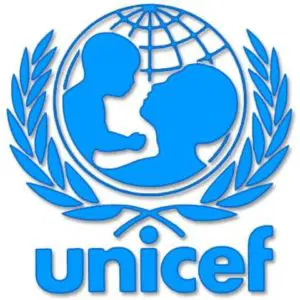The United Nations Children’s Fund (UNICEF) has issued a stark warning about a looming health crisis in Nigeria, where 200 million citizens are at risk of contracting 17 Neglected Tropical Diseases (NTDs). The organization has highlighted open defecation as a critical factor exacerbating the spread of these diseases.
At a recent two-day media dialogue in Lagos on “Ending Open Defecation in Nigeria and Elimination of Neglected Tropical Diseases,” UNICEF’s Chief of WASH, Jane Bevan, emphasized that many NTDs, such as schistosomiasis, trachoma, and intestinal worms, are preventable. She noted that the ongoing practice of open defecation, combined with poor hygiene and inadequate access to clean water, significantly increases the risk of these diseases.
According to the WASH National Routine Mapping (WASHNORM), 47 million Nigerians still practice open defecation, while only 18 percent of the population has access to safely managed sanitation services. Ebonyi State has the highest open defecation rates, followed by Plateau State, whereas Zamfara State has the lowest.
Bevan stressed the importance of safe sanitation and hygiene practices in preventing NTDs. She highlighted handwashing as an affordable and effective preventive measure, stating, “Handwashing is perhaps the most affordable immunization that all Nigerians, including children, can receive to save lives and avoid these diseases.”
UNICEF has achieved open defecation-free status in 126 local government areas (LGAs) and is working towards increasing this number. The organization is focusing on constructing sanitation facilities, implementing hygiene education programs, and engaging communities to promote behavioral change.
UNICEF WASH Specialist, Monday Johnson, reiterated the critical link between open defecation and NTDs. He pointed out that Nigeria bears the highest burden of NTDs in Africa, with diseases such as onchocerciasis, schistosomiasis, trachoma, lymphatic filariasis, and soil-transmitted helminthiasis being transmitted through contaminated soil and feces.
Johnson explained that addressing open defecation is crucial for reducing the transmission of NTDs, improving sanitation, and breaking the cycle of poverty and disease. He noted that NTDs contribute to a vicious cycle of poverty and poor health, leading to increased healthcare costs and economic hardship.
UNICEF is collaborating closely with the Clean Nigeria Campaign and government bodies to address the issues of poor sanitation and open defecation. However, the National Coordinator of the Clean Nigeria Campaign, Mrs. Chizoma Opara, acknowledged significant challenges, including infrastructure deficits, funding gaps, and weak policies, in achieving open defecation-free status by 2030.

